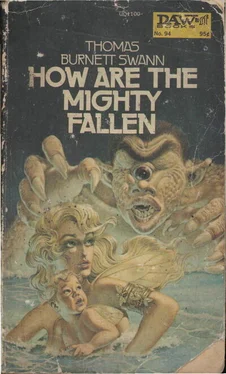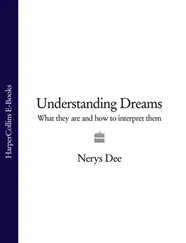Thomas Swann - How are the Mighty fallen
Здесь есть возможность читать онлайн «Thomas Swann - How are the Mighty fallen» весь текст электронной книги совершенно бесплатно (целиком полную версию без сокращений). В некоторых случаях можно слушать аудио, скачать через торрент в формате fb2 и присутствует краткое содержание. Жанр: Фэнтези, на английском языке. Описание произведения, (предисловие) а так же отзывы посетителей доступны на портале библиотеки ЛибКат.
- Название:How are the Mighty fallen
- Автор:
- Жанр:
- Год:неизвестен
- ISBN:нет данных
- Рейтинг книги:4 / 5. Голосов: 1
-
Избранное:Добавить в избранное
- Отзывы:
-
Ваша оценка:
- 80
- 1
- 2
- 3
- 4
- 5
How are the Mighty fallen: краткое содержание, описание и аннотация
Предлагаем к чтению аннотацию, описание, краткое содержание или предисловие (зависит от того, что написал сам автор книги «How are the Mighty fallen»). Если вы не нашли необходимую информацию о книге — напишите в комментариях, мы постараемся отыскать её.
How are the Mighty fallen — читать онлайн бесплатно полную книгу (весь текст) целиком
Ниже представлен текст книги, разбитый по страницам. Система сохранения места последней прочитанной страницы, позволяет с удобством читать онлайн бесплатно книгу «How are the Mighty fallen», без необходимости каждый раз заново искать на чём Вы остановились. Поставьте закладку, и сможете в любой момент перейти на страницу, на которой закончили чтение.
Интервал:
Закладка:
They found a vantage point atop a crag-weeds to prickle their knees through their woolen robes and a frightened cony to keep them company-and watched the Israelites not so much arrayed as scattered across the plain, awaiting the attack. The Philistine army advanced in a movement called the Bladed Square. First the swordsmen, each carrying two spears and a short sword of lethal iron. Then the archers, who fired their arrows over the heads of the swordsmen. Then a second row of swordsmen to protect the archers when they had exhausted their quivers. Finally the ox-drawn wagons which would fall to the Israelites in case of defeat. They lumbered into battle because they contained supplies and physicians and, more important, massive images of the fish-tailed Dagon, the luck of the army, as the Ark of the Tabernacle had been the luck of the Israelites before its capture by the Philistines. Chariots and horsemen rode beside the square to prevent a flanking attack. Such an army was almost impervious on a flat terrain, for every chariot contained a driver and a swordsman, protected by an armored cowl, and battle knives had been affixed to the wheels to mutilate foot soldiers who attacked the charioteers and tried to drag them from their chariots.
The shrill blast of a ram’s horn rebounded among the hills, and scarcely had it sunk into silence than the Israelite archers unloosed a barrage of arrows, which swished and shrilled in the air like deadly eagles. The Philistines raised their oval bronze shields against the assault. A few of the arrows struck below the shields at unprotected feet or at legs protected only by finely meshed greaves. There were cries of anger and pain and the crash of a chariot which had lost its horses. But the Israelites were not experienced archers; with their thin leather shields, they did not wait to receive a returning volley but turned and, quick as conies, scuttled among the hills. It was not a retreat, it was the traditional planned withdrawal, executed with a speed which in the past had never failed to surprise an army laden with armor and accustomed to set battles.
“He has not lost his skill,” Rizpah cried. “Have you ever seen such speed?”
“Rizpah,” Ahinoam gasped, pointing to the Philistine host.
Two new champions had joined the enemy.
They were taller by three heads than the tallest Philistines. Their armor was so prodigious that any- normal man would have stumbled beneath its weight The two brothers of Goliath, stricken by demons of fever before Michmash, indeed, later presumed dead, had reappeared to fight with the enemy.
A voice like that of Baal, the Thunderer, broke the silence. “Israelites, where is your David with his slingshot now?”
Rizpah, Ahinoam, Saul-none of the Israelites except possibly Jonathan knew the whereabouts of David, who had fled from Saul for three years in the wilderness and finally accepted Achish’s offer to rule Ziklag. He had steadfastly refused to fight against his own people. He had fought the Bedouins and kept them from harassing the caravans which plied between Egypt, Philistia, and Phoenicia. He had grown a beard as red and flamboyant as his hair and, when Saul announced that Michal was no longer David’s wife, promptly married a certain Abigail, a rich and beautiful widow whom poets likened to a vineyard ripe with grapes and wooed by bees. He was a hero to the Israelites because he had never raised his hand against the king who had tried to kill him. Not yet, because of Jonathan. Today, however, when Yahweh and Ashtoreth, it seemed, had joined battle, the god of mountain and sky, the goddess of earth and sea, would he fight for generous masters against an ungenerous king?
The army of Israel paused in its flight to stare at these one-eyed ghosts of Goliath, no less tall and terrible, and doubtless remembered the shepherd boy who had killed the giant Everyone knew that, before his death, Samuel had anointed David king over Israel. Everyone knew that Saul had refused to sacrifice to Yahweh before the battle. Had Goliath’s brothers been sent to punish him?
Rizpah shrieked and began to wave her arms at the distant figure of Saul. “Fly into the hills! There the giants will flounder among the rocks!”
“Hush, Rizpah. He can’t hear you. Don’t you see what is happening? There, above us…?”
High in the hills, a movement among the rocks, a man, men, advancing on silent feet; high in the hills which the legless Dagon had made his sea.
“Our men, surely.”
“No. Their helmets bear purple crests.” The Philistines never fought without their crests; such was their pride. Purple was Dagon color, murex color, sea color.
The ridges of Gilboa were as warm with Philistines. Someone had shown them the secret passes into the hills which only “ignorant shepherds know.”
Like a blacksmith holding a horseshoe between his tongs, they held the Israelites between the main army below them and the climbers above them. And the Israelites had not climbed high enough to escape the chariots, which clambered up the slopes like giant crabs: new chariots, wheels of iron instead of bronze, grinding wheels which stones could not break, but which broke men’s legs like enormous claws.
Saul, beleaguered, fought like a wounded lion. Embattled Jonathan struggled to reach his side.
“David has betrayed us,” said Rizpah dully. “He has shown the Philistines to the secret passes. He has murdered my lord.”
“David or another, and he has murdered my son.” Ahinoam had seen the Cyclops’ arrow in Jonathan’s breast.
CHAPTER THIRTEEN
The lost battle reechoed in his brain: the brazen chariots as they stormed the slopes, the bladed wheels as they slashed the wild grasses and the legs of men; the eagle-shrill of arrows; the lightning of spears. Gilboa had come to life and treacherously devoured his mountain-dwelling people. The cruel and unrelenting sun had sparkled the blotches of blood on the plain, and he, David, the exile of Israel, had watched his people routed and overrun; Jonathan felled with an arrow, Saul as he fell on his sword.
After dark, when the slopes lay hushed with their burden of death, he had dared the lions and hyenas in search of life; in search of Jonathan or Jonathan’s body. He was not surprised when a hooded figure approached him across the field.
He knew the queen behind the faltering gait, the hidden face. The sweetness of her in the midst of death affronted his nostrils; finally she groped for words.
“David, my son, they have taken the bodies of Saul and Jonathan and his brothers from the field. I could not stop them.”
He fell to his knees with inarticulate grief. He raised his face to the blank and unresponsive moon, to the heedless mountain, and sobbed a lament for his own comfort and for the unlamented dead. He wanted to stop his ears and hide from Ahinoam as from a demented leper. Life in a field of death was doubly cruel. She had no right to glitter even in the dark, unsmashed beauty amid the ruins.
“You saw the battle?” he said at last.
“I waited with Rizpah on a neighboring crag. I watched them die, Saul and his sons. Jonathan too, the princeliest of them all. We returned to the camp. We fled with the slaves and servants when the Philistines overran us. Rizpah was captured. I hid in a cave with a fox which never moved but stared at me with terrible eyes, the eyes of death. It was your anguish which called to me across the night and I came-not to succor you, for what have I left to give? — but to share, I think, the burden of grief. Perhaps divided it will be endurable. David, my son, was it you who showed the Philistines the secret passes behind Gilboa?”
Sadly he shook his head. “It was not by choice. The Philistines were kind to me, and Achish became my friend. We talked of ships and voyages and the Island of Green Magic, your home. We talked of inconsequential things, never of war. He did not ask me to betray my own people. But once I told him of hunting a lion on the slopes of Gilboa. How I had climbed a secret path which the shepherds knew and surprised the beast in his lair. Achish remembered, and thus only did I betray my people.”
Читать дальшеИнтервал:
Закладка:
Похожие книги на «How are the Mighty fallen»
Представляем Вашему вниманию похожие книги на «How are the Mighty fallen» списком для выбора. Мы отобрали схожую по названию и смыслу литературу в надежде предоставить читателям больше вариантов отыскать новые, интересные, ещё непрочитанные произведения.
Обсуждение, отзывы о книге «How are the Mighty fallen» и просто собственные мнения читателей. Оставьте ваши комментарии, напишите, что Вы думаете о произведении, его смысле или главных героях. Укажите что конкретно понравилось, а что нет, и почему Вы так считаете.












